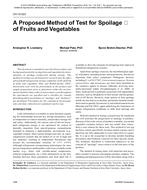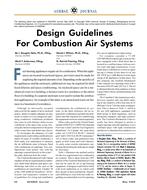The chemical stability of refrigeration oils is commonly determined by tests in glass sealed tubes containing R-12, oil, and steel. Although R-22 is known to be the primary product of that reaction, there is considerable confusion over other reaction products in glass sealed tubes. Hydrochloric acid in excess of stochiometric quantities and carbon dioxide have been postulated to occur because of side reactions involving glass, but this hypothesis has not been confirmed. The structural changes that occur in the oil after reaction in sealed tubes have neither been reported nor explained.
This paper presents the details of the hitherto sketchy chemistry of sealed tube tests. Iron has been found to be solubilized by oil and transported to the glass surface, where the iron-oil molecule, along with the refrigerant, reacts with the glass to form boron-hydrogen and silicon-fluorine compounds, while precipitating out the solubilized iron. Based on gas analysis by infrared, a criterion to identify the entry of glass in sealed tube reactions is defined.
Citation: ASHRAE Transactions, 1985, vol. 91, pt. 1A, Chicago, IL
Product Details
- Published:
- 1985
- Number of Pages:
- 14
- File Size:
- 1 file , 1.5 MB
- Product Code(s):
- D-CH-85-2881


